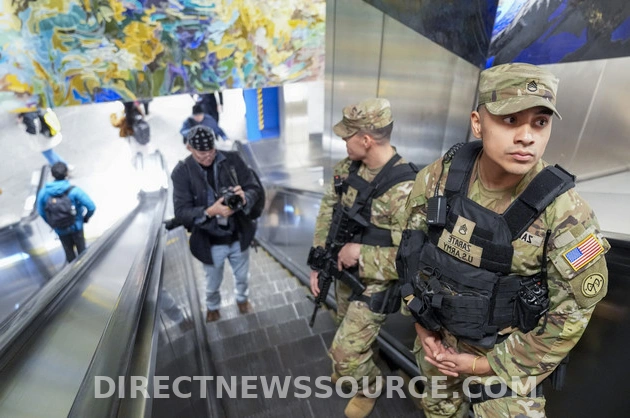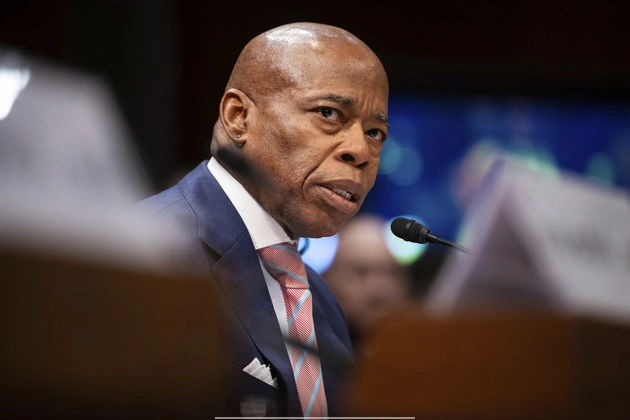
In an effort to enhance safety and restore riders’ confidence, Governor Kathy Hochul has announced the deployment of an additional 250 National Guard members to New York City’s subway system. This initiative comes as part of Hochul’s ongoing push to address concerns about crime and disorder on the nation’s largest mass transit system.
Highlighting the impact of the National Guard presence, Governor Hochul emphasized, “The presence of the National Guard has made not just a physical difference, but a psychological difference in how (people) feel about safety.” The move is a crucial step in Hochul’s broader plan to improve safety and encourage increased ridership following a significant drop in subway usage during the pandemic.
Furthermore, all subway cars will now be equipped with security cameras, marking the completion of a project initiated two years ago. Hochul emphasized the importance of surveillance, stating, “We want to make sure there are eyes everywhere.”
Amid preparations for her reelection bid in 2026, Governor Hochul is addressing key concerns of New Yorkers, particularly regarding public safety. Her efforts come in response to heightened political challenges and criticisms, with opponents focusing on her perceived vulnerabilities. Notably, combating crime has been a central theme, exemplified by a recent Republican candidate’s success in the blue state by emphasizing this issue.
Collaborating with MTA CEO Janno Lieber, Hochul highlighted positive developments in reducing mass transit crime and increasing ridership in 2020. Lieber noted, “The vibe that has been created about the subway being safer is making a difference in riders’ minds.”
Significant strides have been made in addressing fare evasion and managing individuals experiencing severe mental health crises within the transit system. Despite ongoing efforts to boost ridership, a series of high-profile crimes on city trains have posed challenges to post-pandemic recovery efforts, particularly as businesses urge employees to return to offices. The National Guard deployment coincides with the city’s bustling holiday season, aiming to enhance security during this period.
Notably, Hochul’s decision to deploy 750 National Guard members to the subway system earlier this year followed a violent incident, sparking mixed reactions. While some criticized the move as excessive, others accused the governor of insufficient action against crime. Hochul has been proactive in addressing public safety concerns amidst a rise in violent crime during the pandemic, highlighting statewide reductions in various crimes, including shootings.
Despite these efforts, GOP officials remain critical of Hochul’s approach, particularly as New Yorkers express concerns about affordability and safety. Republican Council Member Joe Borelli emphasized the longstanding issue of subway crime and questioned the timing of security measures amidst fare hikes and congestion pricing implementations.
Responding to critics, Governor Hochul defended her actions, citing the deterrent effect of the National Guard presence and the sense of security it provides to riders. She emphasized the deployment’s role in maintaining law and order while offering assistance to those in need.
Importantly, Hochul clarified that the decision was not prompted by a specific incident but aligns with broader public safety goals. The announcement coincided with the acquittal of an individual involved in a fatal subway altercation, underscoring the ongoing need for enhanced security measures.
Collaborating with Mayor Eric Adams, a former police captain whose campaign prioritized public safety, Hochul aims to reassure constituents that authorities are addressing their concerns effectively. Adams unveiled plans for a new $150 million precinct in Jamaica, emphasizing the importance of community engagement and improved police presence to enhance public trust.
The construction of the precinct is expected to enhance response times and visibility throughout Queens, contributing to a safer and more welcoming environment for residents. Adams highlighted the significance of transforming perceptions of police precincts from intimidating spaces to community hubs, fostering trust and cooperation.















